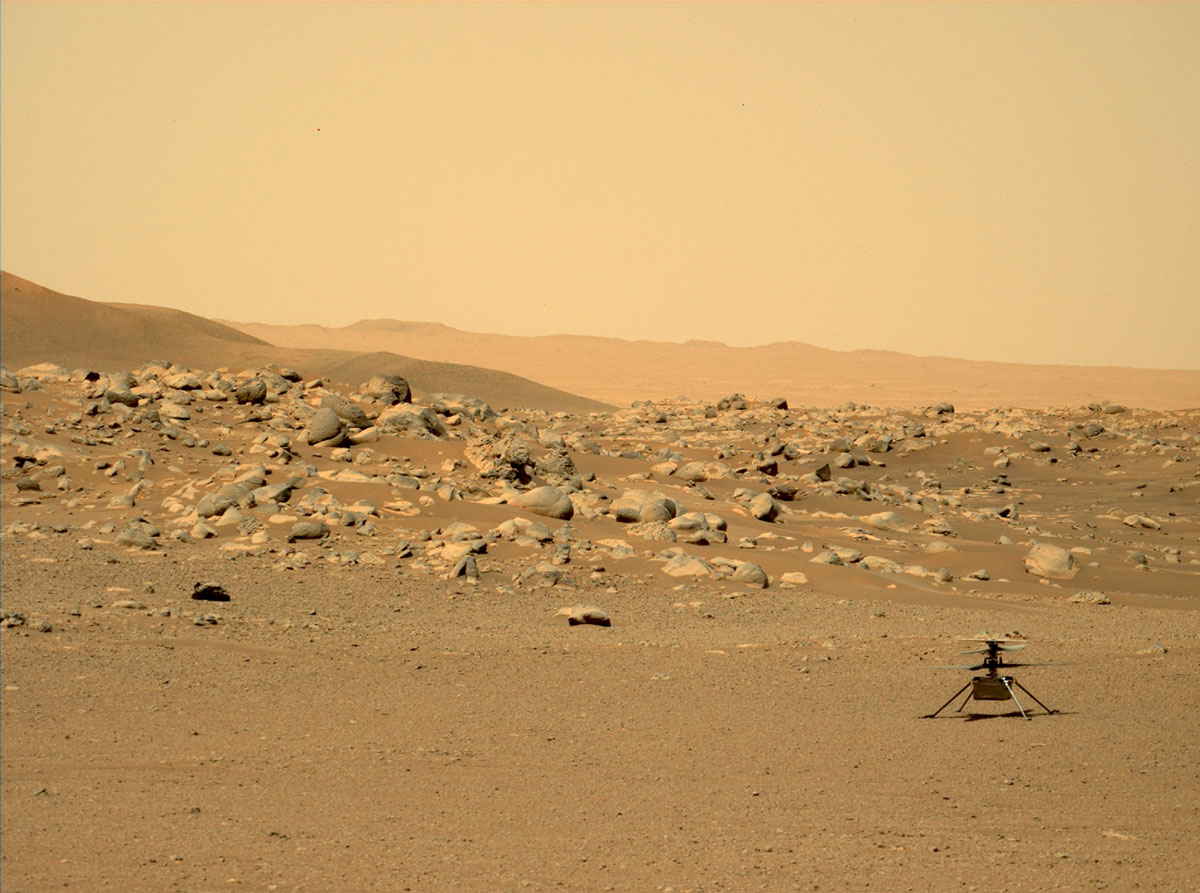NASA's tiny Mars Helicopter completes Flight 33 on the Red Planet

NASA's solar-powered Ingenuity Mars Helicopter has completed its 33rd flight on the Red Planet. The tiny rotorcraft made this 55.2-second flight on September 24, reaching an altitude of 10 meters (33 ft) and covering 111.24 meters (365 ft) at a max speed of 4.75 meters per second.
The helicopter rode to Mars attached to the belly of the Perseverance rover in July 2020 and landed at the planet's Jezero Crater on February 18, 2021. It has survived over a year beyond its original planned lifetime on the planet.
The Sept. 24 flight was the third flight for Ingenuity this month aimed at repositioning of the solar-powered helicopter. The helicopter's flights are autonomous. Pilots at the Jet Propulsion Laboratory, which manages the project for NASA, plan the flights and send commands to the Perseverance Mars rover, which then relays those commands to the helicopter.
Over the weekend, #MarsHelicopter successfully completed Flight 33! The rotorcraft reached an altitude of 10 meters (33 ft) and traveled 111.24 meters (365 ft) in 55.2 seconds. If you look closely at this image, you’ll see Ingenuity’s leg and tiny shadow. pic.twitter.com/4UwPs1bAcV
— NASA JPL (@NASAJPL) September 27, 2022
With the arrival of dust and winter season on Mars, the helicopter was given a break for a few weeks. Winters on Mars are so cold that overnight temperatures go as low as -124 degrees Fahrenheit (-86 Celsius), because of which the amount of solar energy hitting the helicopter's solar panel remains below what is needed to maintain the charge in its batteries both day and night.
The rotorcraft resumed its flight after two months in August 2022 with a short hop aimed at monitoring its health and clearing off the dust that was settled on its solar panel since Flight 29 in June 2022.
As the weather continues to improve (and thus the daily recoverable battery charge), NASA's Ingenuity Mars helicopter is continuing its flight path toward the challenging river delta terrain.










